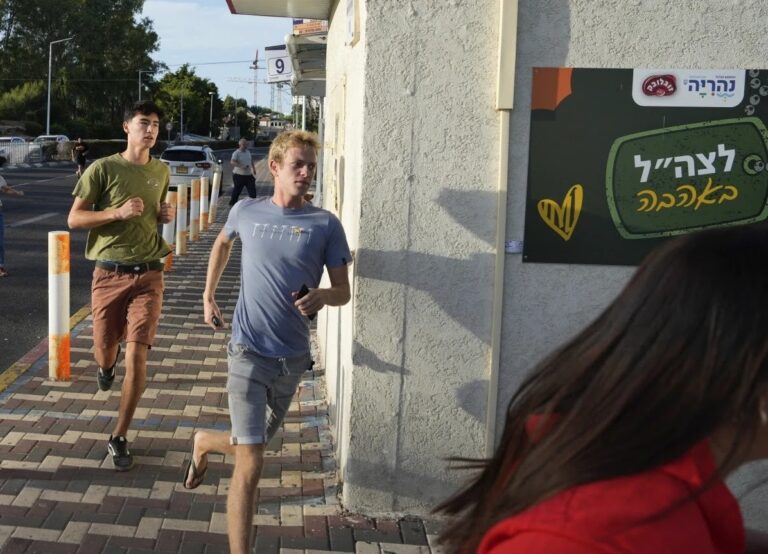 At least eight students at a high school in New York City probably have human swine influenza, but authorities don’t know for sure whether they have the strain that has killed people in Mexico.
At least eight students at a high school in New York City probably have human swine influenza, but authorities don’t know for sure whether they have the strain that has killed people in Mexico.
City health officials say more than 100 students at the private St. Francis Preparatory School in Queens have come down with a fever, sore throat and other aches and pains.
New York City Health Commissioner Thomas Frieden says a government lab needs to do more testing before authorities can pinpoint which strain of flu the students have.
Results are not expected until Sunday.
The symptoms in New York have all been mild and no students have been hospitalized, but the illnesses have caused concern because of an outbreak of a strain in Mexico responsible for as many as 68 deaths.
Meanwhile, Governor David A. Paterson has directed the New York State Department of Health (DOH) to activate its infectious disease, epidemiology, laboratory, disaster preparedness and health systems staff to coordinate efforts across the State as eight cases of probable swine influenza (swine flu) were identified in New York City today. Samples from these cases have been sent to the federal Centers for Disease Control and Prevention (CDC) for confirmatory testing. The CDC is currently the only laboratory that has the capability to confirm swine flu (H1N1). DOH is coordinating with the Nassau and Suffolk County health departments on investigations of additional possible cases on Long Island.
“I want to reassure all New Yorkers that we are taking appropriate measures to address these probable cases of swine flu,” said Governor Paterson. “The New York State Department of Health is working closely with the CDC, the New York City Department of Health and Mental Hygiene, all local health departments across the State, hospitals, physicians, and other health care providers. Earlier today, we shipped 1,500 treatment courses of Tamiflu to New York City. These will be used to treat any severely ill probable swine flu cases or household contacts of probable cases who have underlying chronic health conditions, placing them at extra risk.”
Deputy Commissioner Dr. Guthrie Birkhead, M.D., M.P.H., who heads DOH’s Office of Public Health, will lead the efforts. All local health departments and 22,000 health care providers, including hospitals and physicians have been notified to be on heightened awareness for respiratory illness. Individuals with symptoms consistent with swine flu, particularly clusters of cases, will be promptly investigated for early detection and to minimize potential spread.
DOH is advising hospitals and other health care providers on techniques to maximize protection of all staff and patients, and to promptly ship appropriate specimens to the DOH’s public health laboratory, the Wadsworth Center, which is preparing to receive an increased volume of respiratory specimens from suspected cases of swine flu. DOH has mobilized staff and is assessing its laboratory supplies necessary for flu testing as part of its surge capacity plan. Guidelines for testing, including safety precautions for personnel, will be circulated to all hospital and commercial laboratories who may receive specimens.
DOH will work with CDC on developing guidance appropriate for the public and providers of New York State. The nationwide situation is rapidly evolving and guidance is subject to change. In addition, DOH is monitoring respiratory illness throughout the State by tracking emergency department visits for respiratory illnesses, as well as monitoring the volume of Medicaid prescriptions for Tamiflu and Relenza, which are used for treatment of flu.
DOH is also setting up a toll-free number for New York State residents who have questions or concerns about swine flu. The hotline number is 1-800-808-1987. It will be available 24 hours a day, beginning at 8:00 a.m. on Sunday, April 26, 2009.
DOH Commissioner Richard F. Daines, M.D. said: “Just as with seasonal flu, New Yorkers should take appropriate, common-sense hygiene measures to prevent acquiring or transmitting this illness. To date, the cases of swine flu reported in the United States have been relatively mild. People with severe respiratory symptoms or symptoms that worsen should contact their health care provider for care and treatment. Otherwise we recommend that you stay home and treat your symptoms.”
It is important to note that ordinary seasonal flu, which has symptoms similar to swine flu, is still active in New York State. Precautionary measures for both seasonal flu and swine flu include:
*Washing your hands often with soap and warm water. Alcohol-based hand cleansers are also effective.
*Avoiding people who are ill.
*Staying home from work or school if you are sick.
*Using tissue when you cough, sneeze or spit, and dispose of the tissue in a covered trash bin.
*Keeping hands away from your face. Avoid touching your eyes, nose or mouth.
*Cleaning shared space more often such as phone receivers, keyboards, steering wheels and office equipment.
*Refraining from sharing personal items such as forks, spoons, toothbrushes and towels.
(YWN Desk – NYC)










